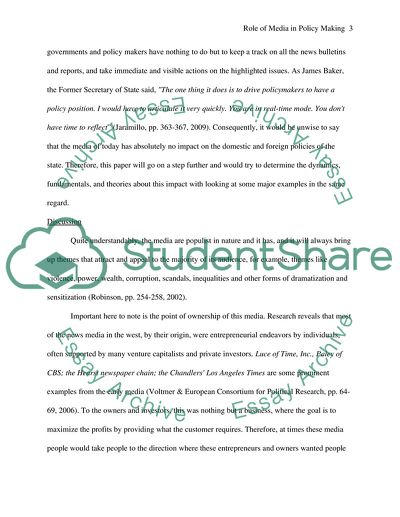Cite this document
(Role of Media in Policy Making Essay Example | Topics and Well Written Essays - 3000 words, n.d.)
Role of Media in Policy Making Essay Example | Topics and Well Written Essays - 3000 words. Retrieved from https://studentshare.org/media/1743863-do-the-media-affect-the-decisions-of-policy-makers-in-domestic-andor-foreign-policy
Role of Media in Policy Making Essay Example | Topics and Well Written Essays - 3000 words. Retrieved from https://studentshare.org/media/1743863-do-the-media-affect-the-decisions-of-policy-makers-in-domestic-andor-foreign-policy
(Role of Media in Policy Making Essay Example | Topics and Well Written Essays - 3000 Words)
Role of Media in Policy Making Essay Example | Topics and Well Written Essays - 3000 Words. https://studentshare.org/media/1743863-do-the-media-affect-the-decisions-of-policy-makers-in-domestic-andor-foreign-policy.
Role of Media in Policy Making Essay Example | Topics and Well Written Essays - 3000 Words. https://studentshare.org/media/1743863-do-the-media-affect-the-decisions-of-policy-makers-in-domestic-andor-foreign-policy.
“Role of Media in Policy Making Essay Example | Topics and Well Written Essays - 3000 Words”, n.d. https://studentshare.org/media/1743863-do-the-media-affect-the-decisions-of-policy-makers-in-domestic-andor-foreign-policy.


